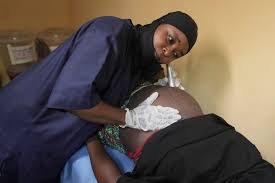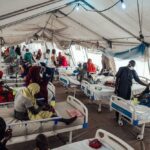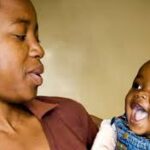Nigeria struggles with high maternal/child mortality

Nigeria continues to battle alarmingly high rates of maternal and child mortality, a public health crisis that threatens the nation’s future. Despite efforts by the government and international partners, the country accounts for a significant share of global maternal and under-five deaths, raising concerns about progress toward the Sustainable Development Goals (SDGs).
Maternal Mortality in Nigeria: A Persistent Crisis
According to the World Health Organization (WHO), Nigeria contributes nearly 20% of global maternal deaths, making it one of the most dangerous places to give birth. The maternal mortality ratio stands at approximately 512 deaths per 100,000 live births, far higher than the global average of 223.
Key drivers include:
-
Poor access to healthcare – Many women in rural and underserved areas give birth without skilled medical personnel.
-
Inadequate health infrastructure – Shortages of equipment, essential drugs, and emergency obstetric care services.
-
Socioeconomic barriers – Poverty, cultural beliefs, and gender inequality limit women’s ability to seek timely care.
-
High fertility rates – More pregnancies increase the risks associated with childbirth.
Child Mortality: A Growing Concern
Equally alarming is Nigeria’s under-five mortality rate, estimated at 117 deaths per 1,000 live births. This means that one in every eight Nigerian children does not survive to their fifth birthday.
Contributing factors include:
-
Malnutrition – Over 40% of children under five are stunted, making them more vulnerable to disease.
-
Vaccine-preventable diseases – Outbreaks of measles, pneumonia, and diarrhea remain common due to gaps in immunization coverage.
-
Poor sanitation and unsafe water – Increases the risk of infectious diseases.
-
Limited neonatal care – Many babies die within the first month due to birth asphyxia, sepsis, and preterm complications.
Why Nigeria Struggles
Nigeria’s health system is underfunded, with healthcare spending at less than 5% of GDP, far below the 15% Abuja Declaration target. Primary health centers, which should be the backbone of maternal and child care, often lack trained staff, electricity, clean water, and essential medicines.
Moreover, insecurity in the North-East and North-West has disrupted healthcare delivery, leaving women and children particularly vulnerable.
Government and Global Interventions
Efforts are being made to address the crisis:
-
The National Health Insurance Authority (NHIA) is expanding insurance coverage for maternal and child health.
-
The Basic Health Care Provision Fund (BHCPF) is designed to improve primary healthcare services.
-
International partners like UNICEF, WHO, and USAID are supporting vaccination campaigns, nutrition programs, and emergency maternal care.
However, experts argue that these interventions have not reached the scale needed to significantly reduce mortality rates.
Path to Solutions
To reverse the crisis, experts recommend:
-
Strengthening primary healthcare – Equipping local health centers with skilled staff and essential supplies.
-
Improving access to family planning – Reducing unintended pregnancies lowers maternal and infant deaths.
-
Expanding health insurance coverage – Making maternal and child care affordable for all Nigerians.
-
Boosting nutrition programs – Scaling up interventions to combat child malnutrition.
-
Investing in skilled birth attendants – Ensuring every delivery is supervised by trained health professionals.
-
Community health education – Raising awareness about safe pregnancy and child care practices.
The Way Forward
Nigeria cannot afford to continue losing thousands of mothers and children to preventable causes each year. Tackling maternal and child mortality requires urgent investment, stronger policies, and a commitment to equity in healthcare access.
If progress is accelerated, Nigeria can save millions of lives and move closer to achieving SDG 3: Good Health and Well-being.



